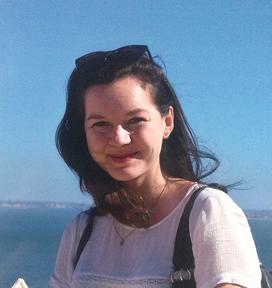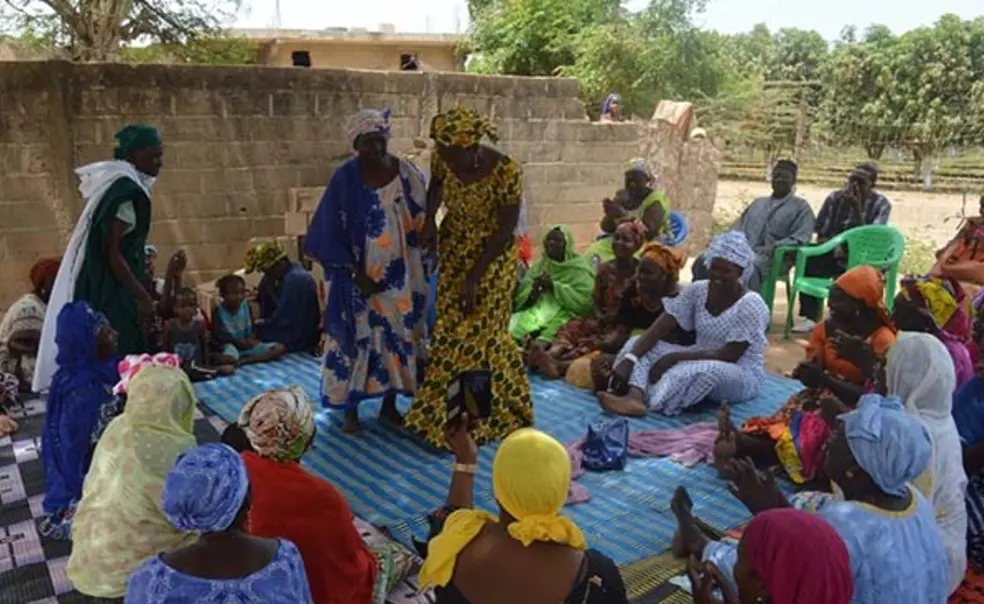I left from the Senegalese capital in July on my first reporting assignment for Reuters. The story was about a strategy to improve community health by leveraging the influence of grandmothers in West Africa. I was fresh out of journalism school, and joked about my daring new life as a correspondent — “Don’t worry mom, I’m just covering grandmas.”
I had moved to Dakar a few weeks earlier, and landed at night. The air was hot and people strolled across the highway as I rode through the city, seeing it first illuminated by the neon signs of nightclubs and fast food restaurants. I really knew I had left Paris, my last home, behind when the Islamic call to prayer hailed dawn.
For the first few weeks I kept notes for myself. There are no traffic lights, I wrote, so intersections are a free-for-all. … The men who carry cages full of tiny birds want you to pay them to let one go. … It’s going to get even hotter.
Soon I was riding past crowded buses and horse carts on my way to Ndoyenne 2, a village just beyond the urban swell. A woman named Adji explained her organization’s work from the front seat of the car as I searched for the right questions to ask. She was taking me to observe a community health session in which grandmothers meet to discuss common problems such as mother and infant mortality and malnutrition. The hope was that through storytelling and debate the women would opt for more modern solutions, such as prenatal consultations, in place of traditional ones, such as relying on a talisman.
“Get a lot of color,” my editor had said before I left. I knew what he meant. To our readers in the United States and Europe, this kind of piece would be a vivid glimpse into a foreign world. But part of me was hesitant. I had lofty ideas about the need for more nuanced reporting on Africa, and now that it was my turn, I was afraid of producing an exoticized cliché.
When we pulled into Ndoyenne 2, bumping off the paved road onto dirt, the grandmothers were sitting in a circle under a tree. In plastic chairs sat the village chief and a few elderly men — important-seeming onlookers whom I greeted in turn after a nudge from my guide. I had studied intercultural communication at Princeton, but the credential was laughable when faced with the task. The villagers spoke Wolof to each other, one of the NGO workers translated into French in my ear, and I fell back on my most reliable tactic: smiling.
The grandmothers began to dance and sing as if opening a ceremony. But it was just an icebreaker, my translator said, to put them at ease before discussion. I self-consciously took photos, wondering how much my presence changed what I saw through the lens. The twirling of brightly colored dresses, wide-eyed children, a girl peering over a stone wall. In one of my pictures, I noticed later, one of the women was taking pictures too.
The head of the village, a middle-aged man in glasses, checked his phone as discussion kicked off. Distracted by my surroundings, I strove to focus on the words.
“Traditionally pregnant women stay inside, but now these things have changed,” a grandmother said. They seemed to agree that going to the doctor was important, and I wondered again if this wasn’t all perhaps a show. But then the chief stood up and spoke with candor. Until 1996 the village was remote, he said. Then it became a commune, and later got its first school. When health workers began working with grandmothers in 2012, the women were reluctant to change.
“We’re becoming urbanized,” he said. “Now we need health.” I recalled a word Adji had used in reference to Ndoyenne 2. It was in the “banlieues,” she had said, French for suburbs, although it usually connotes poor city outskirts. I had written this off when I saw the dry fields and donkeys — not like any kind of suburb to me. But in Dakar rural and urban, outdated and modern intersect in unfamiliar ways. It is easy to separate them and see contradictions, but hard to understand the elements as one coherent whole.
Before leaving it was my turn to say something, so I rose. Through a translator, I thanked the women for welcoming me, told them what an honor it was to witness their gathering, and said how interested my far-off readers would be to learn about their role. But eyes remained fixed on me when I paused, and I knew they were expecting more.
Glancing at my translator, I continued, “Could you please add whatever I’m supposed to say?” He kept speaking in Wolof as if it were translation. Everyone clapped. I forgot to ask him what my parting words were.

Nellie Peyton ’14 is a journalist based in Dakar, Senegal. She studied comparative literature at Princeton and earned a certificate in translation and intercultural communication. She recently completed a master’s degree in journalism and international affairs at the Paris Institute of Political Studies.
This essay is part of a new series at PAW Online. If you would like to contribute to the series, contact us at paw@princeton.edu.












No responses yet